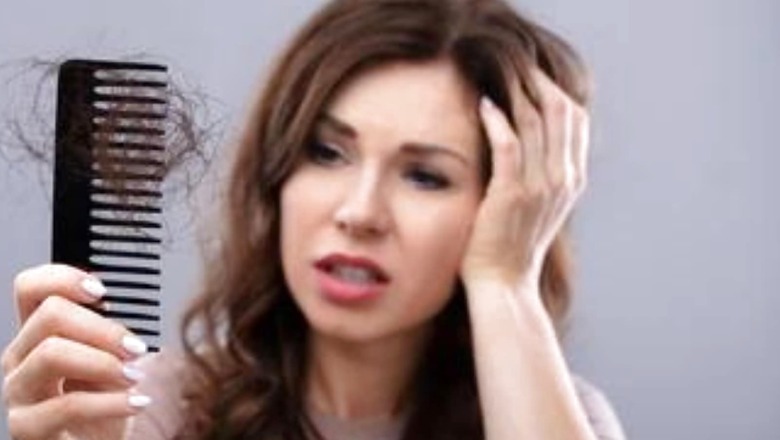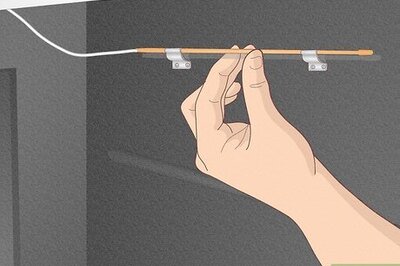
views
Have you ever wondered why your hair won’t stop falling out? You have tried every page in the book, every nuska, every shampoo in the universe but still not getting any results? Well you are right to be curious about that, because the answer might lay closer to home- in your genetics. Genetics affects everything, right from the colour of our eyes to our face structure and even hair growth. Your genetics determine whether or not you will be experiencing hair fall in your later stages of life. “Hair loss through genetics is called male pattern baldness(MPB) and female pattern baldness(FPB). Also known as androgenetic alopecia, it affects individuals regardless of their gender,” says Dr Kalyani Deshmukh, Dermatologist, Traya.
Myth v/s Reality:
There is a common misconception that men acquire MPB from their mother’s side while women inherit it from their father. This cannot be further from the truth. “The male genetic integrant is still on the verge of being understood, it is believed to be polygenic, meaning, it contains more than one gene. Humans have 23 pairs of chromosomes that enlist their origin. One pair out of these pairs the X and Y chromosomes determine your gender,” adds Dr Deshmukh. The succession of X chromosomes comes from your mother and Y from your father.
What is the root cause of baldness?
- Stress – Stress and hair fall go hand in hand. Stress related hormone cortisol is responsible for your metabolism and immune function. It also triggers our nervous system upon experiencing extreme stress and anxiety.
- Gut Imbalance – Disturbance in the digestive system can cause deficit of nutrients needed for healthy hair growth. The building blocks of our hair might get compromised when our digestive tracts get contracted by Irritable Bowel Syndrome(IBS) and Inflammatory Bowel Disease (IBD).
- Nutrient Deficiency – Insufficient amounts of nutrients like B12, and iron can contribute as a factor in hair loss.
- Hormonal Imbalance – When estrogen and progesterone levels fall, hair follicles suffer through shrinkage and thinning of hair. 83% of PCOS and 64% of Thyroid damage hair internally and are too big a number to be ignored.
- Lack of sleep – Deprivation of sleep is another irritant that can affect the quality of your hair. Although owls are wise, being a night owl is not always recommended.
Hair care after the diagnosis of androgenetic alopecia may sound like a myth but it is actually possible with some helpful measures. Hair loss caused by genetics cannot be cured but with various cure credentials one can control if not stop the loss of hair. Dr Deshmukh shares ways to control hair fall.
- Using hair solutions like Rogaine also known as Minoxidil and Finasteride for the treatment of hair roots.
- Adopting a healthy lifestyle– Practising Yoga to counter anxiety and for better treatment of mental health.
- Getting an adequate amount of sleep– Having a sound sleep for 7 to 8 hours will do the trick of releasing enzymes and growth hormones that are responsible for hair growth.
- Eating a balanced meal can contribute greatly to fighting hair loss and embracing nutrients like Vitamin C, Iron and Omega-3 Fatty acids will grant you a healthy scalp.
Also Read: Sexual Health Educator, Seema Anand Says Not Just The Western World But Indians Too Misunderstand The Kama Sutra | Exclusive
No matter what your gender is, genetics has a huge impact in affecting your hair. So to bust your myth, family lineage is not the only factor in determining the causes of hair loss. Most changes are internal which affect the growth of your hair. So eat healthy and stay fit to flip that fabulous hair of yours.
Read all the Latest Lifestyle News here




















Comments
0 comment